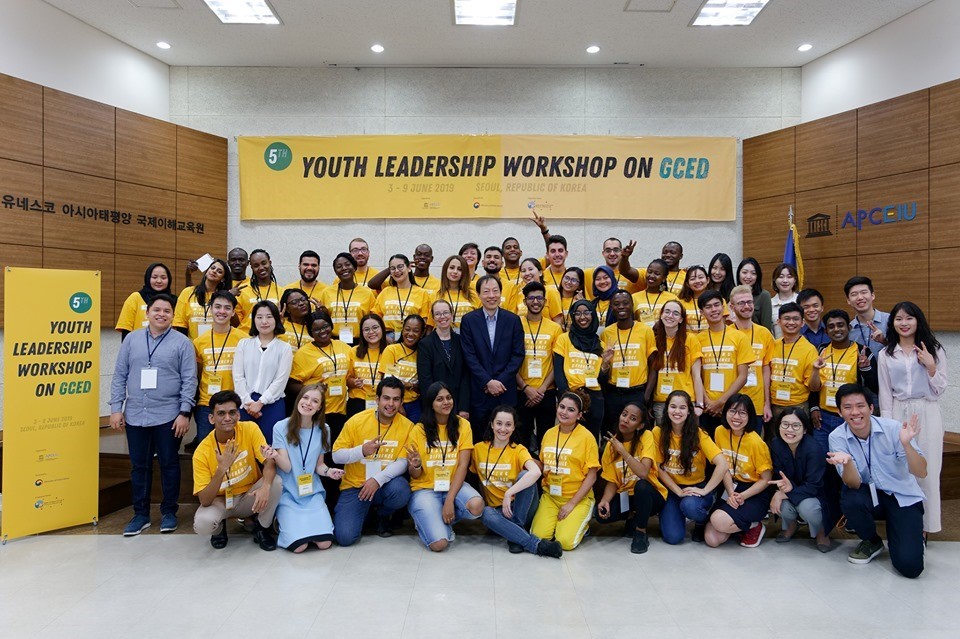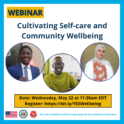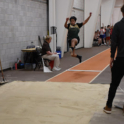For Teacher Appreciation Week, Yudha from Indonesia celebrates a teacher who made an impact
STORIES
Promoting Global Citizenship

By: Hajar Habbat (YES 2014-2015, hosted by IRIS in Ankeny, IA)
Out of 10,000 applications across the world, 42 youth leaders from 37 countries, including Morocco, convened together at the 5th Youth Leadership Workshop on Global Citizenship Education (GCED). I believed the conference would give me the opportunity to learn more about the importance of global citizenship education, and understand the youth’s important role in leadership and entrepreneurship. Held at UNESCO’s Asia-Pacific Center of Education for International Understanding (APCEIU) in Seoul, South Korea, we joined together to discuss contemporary global issues.
This one-week workshop, from June 3rd to June 9th helped us build our capacity to identify strategies in achieving the UN Sustainable Development Goals (SDGs), specifically Target 4.7, and to carry out innovative initiatives on fostering global citizenship and human rights. Target 4.7 promotes sustainable development through global education. It is one of the most ambitious and complex SDG targets. More than any other target, Target 4.7 explicitly links education to the overall SDG agenda as it calls for its key themes to be mainstreamed in curricular contents, teaching practices and assessment and be given greater importance in policy planning.
There is a growing consensus that education plays a central role in increasing understanding of global issues and in promoting peace, human rights, equity, acceptance of diversity and sustainable development. In a globally interconnected and interdependent world, education needs to address communication skills as well as cognitive knowledge and skills. GCED promotes the concept of a ‘global citizen’ in terms of citizenship beyond borders or beyond the nation state. As participants in the UNESCO Technical Consultation agreed, ‘global citizenship’ is not about legal status but rather about common humanity and a sense of belonging to a global community. Global citizens are, therefore, not only concerned about the rights and well-being of their own community and country, but also about the rights and well-being of all people and the wider global community.
While enabling us to deepen our understanding of GCED, the workshop allowed us to play a major role and become part of a wider network of youth leaders for GCED. During the workshop, we identified specific priority issues around global citizenship and established plans for the future direction of GCED. Working both individually and in groups, we learned to devise the goals and strategies for use at local and national levels. We were also able to learn about specific areas such as GCED and human rights through information sessions and engage in dialogue and debates on the evolving issues.
This workshop gave me the chance to have a closer insight into the mechanisms behind global citizenship such as advocacy campaigning, and possibilities for incorporating global citizenship education into projects. Throughout my life, I have strived to be in an environment where youth can innovate and engage in GCED. I strongly believe that the Youth Leadership Workshop not only allowed me to build valuable youth leadership skills, but also to work alongside, learn from, and be inspired by equally devoted individuals from around the world.
With the help of my new network of Global Citizens from 37 countries, I am now working on re-structuring my project “Youth for Tomorrow” using the skills I have acquired as a participant of the Youth Leadership Workshop. I am also working on a campaign for gender equality in my town, using the advanced acquired tools for advocacy. In my case, I chose to be a YES student and challenge the world for who I am; a strong woman. In my opinion, this is the core value of global citizenship: first, to understand a challenge; second, to feel the challenge; and third, to look at the challenge from a global perspective in order to promote a peaceful, inclusive and better world.





